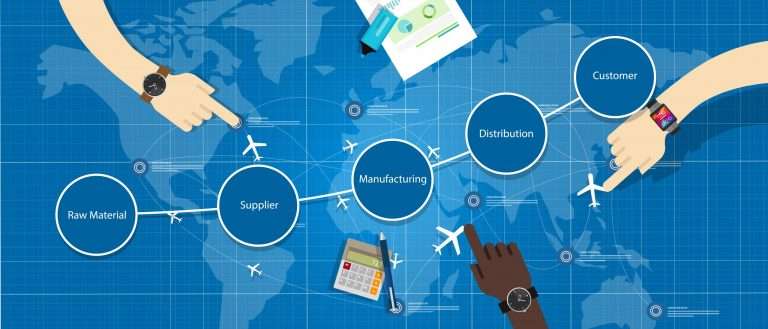The need to integrate sustainable options into supply chain management is rapidly thriving to curb the challenges which arose due to the Covid-19 pandemic and thereafter the Ukraine-Russia war. This has resulted in companies working on different approaches to attain supply chain sustainability by changing the way they operate businesses.
The impact a company’s supply chain has made in the promotion of just labour practices, environmental progress, human rights, and anti-corruption policies is what is referred to as a sustainable supply chain. In this article, we discuss four priority strategies for improving supply chain sustainability and explore their impacts.
The priority strategies for improving supply chain sustainability
There are those common strategies that are a priority in the upgrade of supply chain sustainability for companies which in turn leads to opportunities that are of value and increases the competitive advantage for process innovation with timely adoption. The priority strategies for improving supply chain sustainability are as follows:
1. Considering the role of data in supply chain sustainability
Data plays a vital role in the running of a sustainable supply chain and can also offer support in the control of the process. Data can disclose the aspects of the supply chain flow and may be used in the modeling and implementation of solutions.
In particular, the company’s live data gives an important perception of the supply chain status. It also provides a good connection among those in the supply chain regarding flow, cost, efficiency, and cost. It enables companies to come up with methods to take out-ups and downs for the signal of demand can become more stable. In the collection of data, the supply chain pulse can be measured and marked.
Real-time sources of data are used to detect the performance of suppliers and minimize the uncertainty that may arise from internal or external catastrophes which may include the current public health emergency and pandemics that businesses are working through.
Data analytics are essential in uncertain periods for supply chain flexibility and management. Even though most businesses are reluctant to participate in the sharing of data and physical arrangements. The slow action to this has resulted in the risk of missing out on efficiency, resilience, and higher accountability across the supply chain.
Businesses have the mandate to work on this reluctance by embracing the new technology to enable transparency in the supply chain and collaborate with the parties across the crucial parts of the chain.

2. Adopting Artificial Intelligence (AI) in the supply chain
Artificial Intelligence in the supply chain is the intelligence revealed by machines whereby machines can take over the behavior of humans such as learning and solving problems. AI is a crucial strategy that has to be applied by businesses to operate important issues of supply chain management and enhance sustainability.
It possesses improved tools which may be applied throughout the chain to minimize the effects of worker shortages worldwide, enhance efficiency and devise safe and better ways of moving goods from one place or point to another. Every company has to apply AI in the supply chain throughout – from manufacturing to front door delivery. Retail customers are applying AI to understand better the major analytics to be able to predict how the future will be.
With the application of AI, a company will be in a position to save costs through minimized redundancies and mitigation of risks. There will also arise the benefits of enhanced forecasting, improved service to customers, and access to more optimized routes leading to faster deliveries.
For the application of AI in the supply chain to give value, there is a need for a company to consider certain factors that AI requires. For example, it is imperative to acquire data that is fresh to make good decisions. The results of AI should be better than that of a traditional system and hence there is a need to access downstream and external data.
An AI tool has to consider a change in decision making as well as the cost to be incurred in the change, the process of decision making has to be continuous hence the AI system has to tackle the problem perpetually.
The AI system must be in a position to process high volumes of data in a short period, make creative decisions, and on a vast scale. With the fact that the world is awakening to the application of AI systems in complex and difficult decisions, Companies have to act fully to embrace Artificial Intelligence to make vast decisions. As the company becomes more complex and swift-moving, AI will become more essential in predicting the results of any upcoming decisions.
3. Aligning the supply chain with the company goals
The alignment of company goals with the supply chain is performed by combining operations planning and sales with the corporate planning of the business. For the past few years, companies’ business risks have significantly increased as most leaders are coming across arrange of uncertainties in the market.
Because of this, companies have to focus on integrating their programs of sales and operations with their forecasting efforts and budget. The focus in this will be for the company to come up with a planning potential that interprets priorities of macro business and risks that are continuously updated to indicate the changing conditions in the market.

4. Insert sustainability into the operations of the supply chain
Considering all forms of sustainability has accompanied profitability and growth in businesses as a top priority. As part of the generation of profits for the shareholders, sustainability should be an important priority for companies.
Several tactics may be used by companies to improve the sustainability of the supply chain. These may involve the development of long-term goals that aim to enhance essential sustainability measures these may include efforts in recycling and green energy usage.
Companies can ensure a data model that is shared to provide visibility throughout and insights for real-time are required to enhance supply chains and ensure their sustainability. Deployment of new technologies by the teams may be crucial to maintaining reliable environmental practices.
To find out how Permutable’s AI technology can help you prioritise strategies for improving supply chain sustainability in your company get in touch with us and request a demo below.
